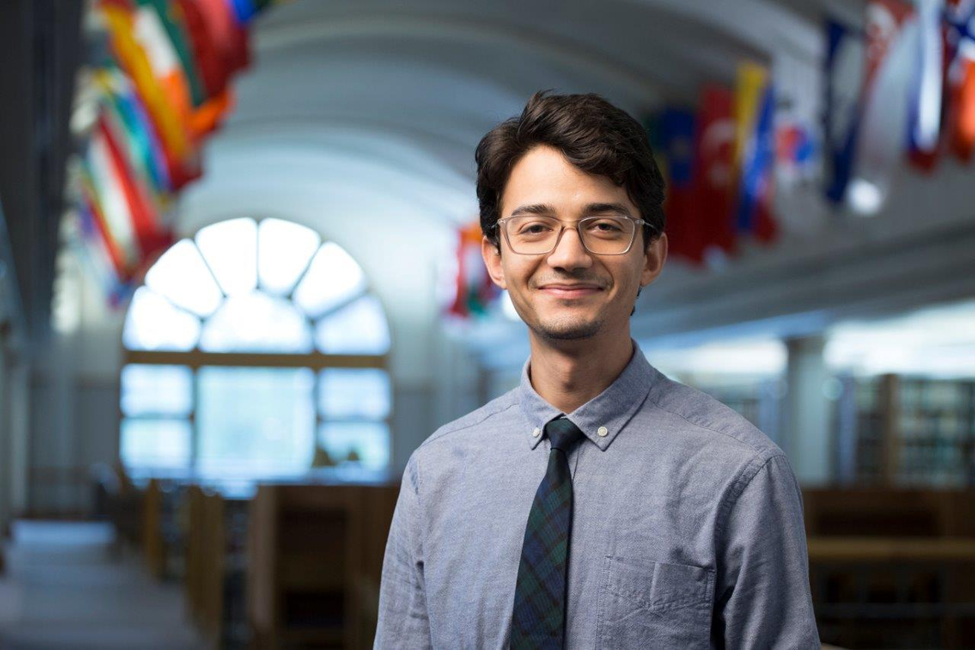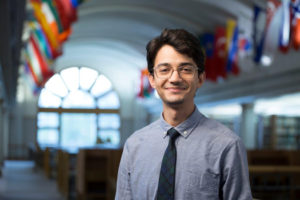
Drury welcomes new Fulbright language professor to Springfield
Campus News September 15, 2017, Comments Off 265Article by Johan Englen.
Drury University is known for its impressive academic programs and its Arabic language class isn’t an exception.
In fact, the institution has an ongoing program where every year a new Fulbright Scholar comes to teach Arabic. These scholars, being native Arabic speakers, share their language, culture and knowledge with Drury students. Professor El-Hajjami is the new Fulbright Arabic professor on campus, making this school year no different.

Professor El-Hajjami. Photo via Drury University.
El-Hajjami is from the Kingdom of Morocco – more specifically Fez, a city in the northern part of the country. There, he worked as a teaching assistant at the local university. He also gave academic tours of the city to visiting foreign students and professional academics.
El-Hajjami is proud to be from such an ancient city, quite unlike the United States. “It was built between the 9th and 8th century and lots of civilizations went through the city of Fez: the Jewish civilization, the Berber civilization and the Arabic civilization,” he explained. “We can see some touches of modernity, but its culture is still very dominant.”
El-Hajjami seems to be an optimistic man with a bright intellect and a passion for sharing his culture. However, one could not fault him if he were befuddled since this is his first time in the United States. However, he claims to not have experienced any culture shock.
“I have read a lot about culture shock in my home country. I have given talks about culture shock. I teach people how to manage culture shock,” said El-Hajjami.
He elaborated, “I have developed, what I call, international intelligence. [This] makes me ready and willing to face culture shock. When I am in a different country, I think, ‘The way people think here is totally different from mine,’ so I have to be accepting.”
So far the professor has enjoyed Springfield, but he has definitely noticed the decrease in population density. Coming from a “collectivist culture”, he is used to constantly being around other people but continues to be positive about this “life-changing experience.”
Above all, El-Hajjami sees himself as a bridge builder – as a medium for open discussion to mend the misconceptions of Arabic culture.
“I am here for dialogue because I have discovered a very open culture here,” he explains. “A very tolerant culture where people coexist. This is something which we don’t see in media.”
By relying less on media and more on each other, El-Hajjami believes tolerance and acceptance is possible.
“Maybe Americans might have some perceptions of Moroccans as being extremist, as being terrorists and things like that. Maybe they can see my country in me,” said El-Hajjami.
He also noted, “I was once told by an American professor whom I took for a tour in Fez, ‘Well we should never rely on media. We should move from our comfort zones, meet people from other cultures and talk to them to learn exactly what’s going on.’ And what is going on is that people are ready to tolerate. People are ready to coexist and accept others. That’s the most important thing and that’s why I am here.”